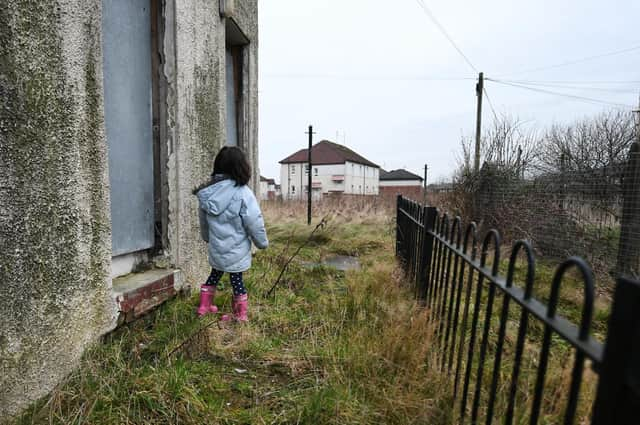Children's mental health matters to Scotland's justice system – Karyn McCluskey


Their excitement is palpable in those heady first weeks of school as they face the exhaustion of learning new things.
But for so many of our children, a bag, heavy with books, and gym kit is not the only load they carry. Some arrive at school carrying the burden of living in homes where parents might be fighting their own demons around alcohol or drugs.
Advertisement
Hide AdAdvertisement
Hide AdFamilies with acute and chronic mental health problems, domestic abuse, bereavement and so much else. Some come to school having been neglected and abused.
There is new research looking at children who are referred to Child and Adolescent Mental Health Services (CAMHS) in Scotland. A quarter of referrals were for children who had either attempted or were thinking about suicide – a third of those children were under 12.
Many years ago, I visited a school in the east of Glasgow where counsellors from Place2Be, a leading children’s mental health charity, were a full-time part of life there.
Children of all ages could go along to a room to speak to trained child mental health practitioners, supporting youngsters presenting with self-esteem issues, self-harm, bullying or a need to speak about their anxieties and worries.
The headteacher outlined some of the backgrounds and troubles that these children bore, some in foster care – a level of complexity that would bring most adults to their knees. Yet they had trauma-trained, highly experienced people to counsel, to listen, to support the child, the teachers, senior school leaders and the family. All those years ago, I thought it was pretty extraordinary. I still do.
Place2Be is still in many schools across Scotland, keeping children engaged and supporting teachers and families help children who might have problems ranging from shyness to emerging serious mental health problems.
Anyone who has tried to access CAMHS knows how overwhelmed the service is, how far away appointments can be, yet these services in schools can support earlier management of emerging problems, keep children learning and give families the knowledge of issues from bed-wetting to family breakdown, bereavement to dealing with the dreaded smartphone addiction.
Life has become overwhelmingly difficult for so many of our children, some end up in the justice system because we fail to address or prevent the traumas that beset them in early life.
Advertisement
Hide AdAdvertisement
Hide AdTeachers have huge experience in supporting children’s needs, but it’s a mighty ask when you have a class of perhaps 30 children, to give one-to-one support.
The complexity some children experience can require specialised support. One-in-six children has a diagnosable mental health problem and some continue with this into adulthood.
Some 50 per cent of people with lifelong mental health problems experienced symptoms by the age of 14. So often these problems lead to children not attending school or unable to learn. We need to address this early.
Prevention is often the first thing to go when the public purse is squeezed. It seems easy to cut preventative services. We may live to regret it.
Karyn McCluskey is chief executive of Community Justice Scotland
